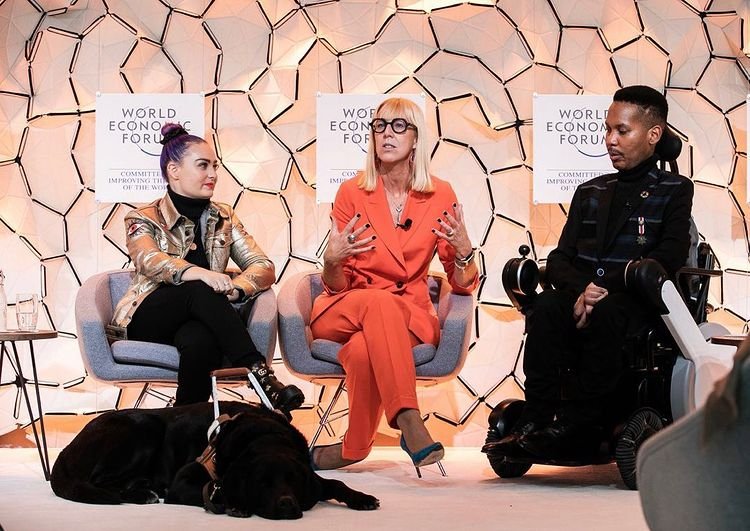“There is a global disability inequality crisis. And it can’t be fixed by governments and charities alone. It needs the most powerful force on the planet: business.”
— Caroline Casey, Founder, the Valuable 500
Diversity, Equity, Inclusion and Accessibility (DEIA) is a topic advocates talk about daily. So much work is happening and yet simultaneously so much work remains. Oftentimes, I think of advocacy the way I think of a book jacket. The material might be the same but different covers may resonate with each member of your audience.
As the World Economic Forum kicks off in Davos this week, I thought it was important to highlight the Valuable 500 Initiative—the largest global network of chief executives committed to disability inclusion. Launched in 2019, the initiative aims to “set a new global standard for workplace equality and disability inclusion by engaging 500 private sector corporations to be the tipping point for change and to unlock the business, social and economic value of the 1.3 billion people living with disabilities across the world.”
Some of the world’s biggest companies including Apple, Microsoft, Google, Sony, and Verizon are among its participants.
Although 90% of companies claim to prioritize diversity, only 4% of businesses are focused on making offerings inclusive of disability according to the World Economic Forum.
A May 2022 report published by the Valuable 500 also found that:
• 33% companies surveyed have not developed or begun to implement a digital focus on accessibility
• 29% of companies have a targeted network of disabled consumers or stakeholders.
The cost of excluding people with disabilities represents up to 7% of GDP in some countries. With 28% higher revenue, double net income, 30% higher profit margins, and strong next generation talent acquisition and retention, a disability-inclusive business strategy promises a significant return on investment.
On the federal level, data on inclusion efforts tells a similarly disheartening story. A newly released report by the EEOC found that persons with disabilities remain heavily underrepresented in leadership positions; 10.7% of disabled employees are in positions of leadership vs 16.4% for those without. Further, the report noted that people with disabilities were 53% more likely to involuntarily leave federal service than persons without disabilities.
Clearly, both privately and publicly, a lot of DEIA work remains. These disconnects in the data further support the need for advocacy around not only things like Global Accessibility Awareness Day, but also an increase in disability representation to effectively close these gaps.
Let disabled people not simply have a seat at the table, but a voice in the conversation. Your company will be better off for it.
